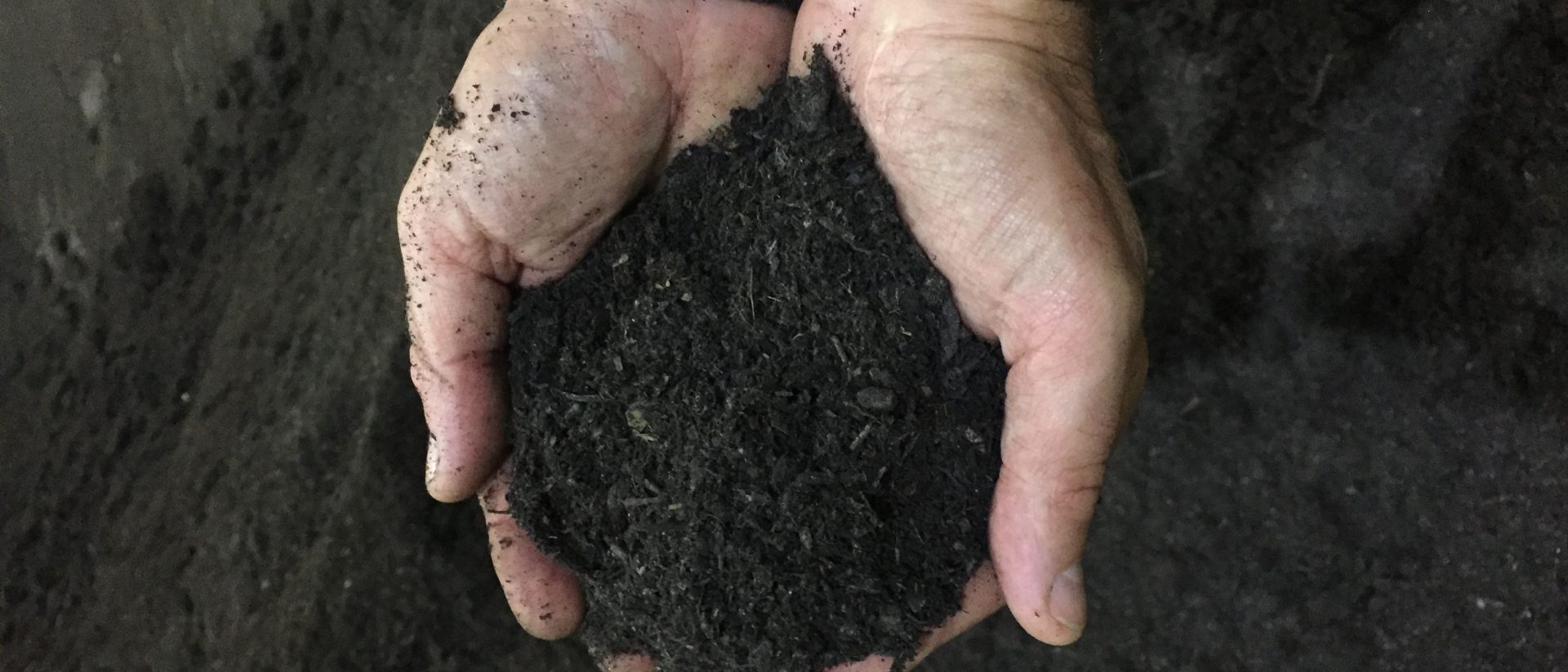REA blog: What are the benefits of applying compost to soils?
An REA blog written by Jenny Grant, Head of Organics and Natural Capital, in the lead up to International Compost Awareness Week 2023 (ICAW).
Most people in the UK are familiar with or have some form of composting system in their home, however, many are not aware of how composting actually works and why it matters.
Composting is a natural process that transforms organic waste into a nutrient-rich soil amendment that can be used to improve soil health and plant growth. It is an environmentally friendly way to manage waste and reduce the amount of material sent to landfills.
International Compost Awareness Week (ICAW), which takes place at the beginning of May each year, is an opportunity to celebrate the benefits of composting and raise awareness about its importance. With this year’s theme as “For Healthier soil, healthier food…compost,” it is important to highlight the wide range of benefits applying compost to soil can bring to both the environment and the community.
- Improved soil fertility: Compost is rich in organic matter and nutrients, such as nitrogen, phosphorus, and potassium, which can enhance soil fertility and promote healthy plant growth.
- Increased water retention: Compost has the ability to hold onto moisture, which can reduce the need for frequent watering and prevent soil erosion.
- Enhanced soil structure: Compost can improve the physical structure of soil, making it more porous and able to hold more air, which can benefit root growth and plant health.
- Reduced soil erosion: The organic matter in compost can bind soil particles together, which can reduce soil erosion caused by wind and water.
- Increased microbial activity: Compost provides a diverse range of microorganisms, which can enhance the soil’s natural processes, such as nutrient cycling and disease suppression.
- Reduced reliance on synthetic fertilisers: By providing a natural source of nutrients, compost can reduce the need for synthetic fertilisers and pesticides, which can be harmful to both the environment and human health.
- Reduced landfill waste: Composting organic materials can divert waste from landfills, reducing greenhouse gas emissions and helping to create a more sustainable system of waste management.
How to Get Started with Composting
Starting a composting system is easy and can be done in any size yard, balcony or even indoors with the use of vermicomposting, which is composting with worms. To get started with composting, you need three basic ingredients: browns, greens, and water. Browns are high in carbon and include materials such as dried leaves, straw, and newspaper. Greens are high in nitrogen and include materials such as fruit and vegetable scraps, grass clippings and coffee grounds. These materials should be layered together in a compost bin or pile and kept moist to facilitate the decomposition process.
Dishing the dirt: Tips for Successful Composting
To ensure that your composting system is successful, there are a few tips to keep in mind. First, make sure to balance your browns and greens in the compost pile. A good rule of thumb is to use twice as many browns as greens. You should also turn your compost pile regularly to help aerate it and facilitate the decomposition process. Additionally, you should avoid adding meat, dairy, and oily foods to the compost pile, as they can attract pests and slow down the composting process.
It is clear to see why composting is such a simple yet powerful way to reduce waste, improve soil health, and promote sustainability. By celebrating ICAW, we can raise awareness about the importance of composting and encourage more people to start composting at home. Whether you have a large garden or a small balcony, composting is a fun and rewarding way to make a positive impact on the environment!
How are YOU celebrating ICAW?
Throughout International Compost Awareness Week, community, school, government and business events are held to encourage and celebrate composting – all types of composting – from backyard to large-scale. See the incredible range of activities taking place throughout the UK organised by our brilliant REA organics members!
- Severn Trent Water are conducting an annual compost giveaway thanking people for recycling their garden waste! The organic compost produced from local garden waste across Hertfordshire can be collected for free by Three rivers residents. Find out more here.
- Eco Sustainable Solutions are offering a 10% off code for compost to all REA members! Please use ‘REA10’ for 10% off all products, excluding delivery and turf here.
- Tidy Planet have created an excellent short video discussing the importance of composting. Watch the video here to see a great example of a truly circular process.
- Veolia are posting a series of videos throughout the week from their experts taking us through many aspects of composting, from how peat free compost is made, to maintaining a happy and healthy compost bin, to building a wormery and finding low-cost ways to compost without a garden. Stay tuned via Twitter here.
- SED Services Ltd have teamed up with St Helens Borough Council to offer free compost to residents. The compost giveaway will be held at two events (Thursday 11th and Friday 12th May) in different parts of the borough, as a thank you to residents for using the council’s garden waste collection service. Find out more here.
- Envar has announced the launch of their latest product: Spent Mushroom Compost. It is a by-product of mushroom cultivation and is an excellent soil improver and mulch for home gardens and allotments. Find out more here.
Get in touch at [email protected] for more information or to add your activities to the above list.
International Compost Awareness Week 2023 Video, courtesy of Jenny Grant, REA Head of Organics and Natural Capital and her daughter:
It’s International Compost Awareness Week. This year’s theme is ‘Healthier soil, healthier food…..Compost!’ My daughter made this little video to celebrate. #compost #soils #lego pic.twitter.com/g7vUan3XwY
— Jenny Grant (@jenny77grant) May 9, 2023

